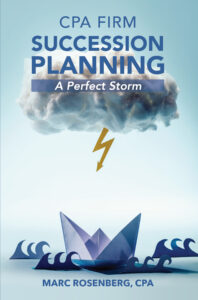Firm Retirement Age of 85 Averts Staffing Crisis
![]() Kristen Rampe, CPA / Apr 1, 2023
Kristen Rampe, CPA / Apr 1, 2023
 A satirical blog post in celebration of April Fool’s Day.
A satirical blog post in celebration of April Fool’s Day.
Struggling with the ongoing talent shortage facing the accounting industry, local CPA firm Watts, Taber and Fiske recently made a change giving them a viable option for staying independent. The firm raised its minimum age for partner retirement from 62 to 85, which gives the firm an extra 23 years to search for the right talent to succeed the hard-working senior partners.
Many firms have a minimum retirement age for partners to receive a full buyout, which allows the organization to rely on owners working for decades to maintain continuity of leadership and client relationships. Changing this practice offers a new approach other firms can consider if they don’t have any successors in the wings.
Adapting Plans
While hoping to maintain their original age of 62, so that retiring partners could pass the torch to a promised line of up-and-coming CPAs, WTF realized that the pipeline was less than empty and they needed a new strategy.
“We thought we’d be able to promote Kayleigh and Brian, but as it turns out they’ve decided they just want to work 45 hours a week while they raise their children. And that’s obviously inconsistent with the expectations of an equity partner.” said Managing Partner Bill Billings.
Past Approaches
On paper, Watts, Taber and Fiske looked like they had been doing everything right for succession planning. They had three senior partners and four newer partners, but firm growth resulted in the newer partners quickly having full books’ of business. This meant they were unable to take on significant amounts of the retiring partners’ practices (some of which they didn’t want anyway, according to sources familiar with the matter).
Watts, Taber and Fiske recently turned to other tactics to attract and retain senior associates and managers to build their pipeline, including:
- Annual raises of 5% across the board, and 10% for the super-stars they “can’t afford to lose.”
- Offering flexible work arrangements such as no mandatory Saturdays as long as at least 65 hours were worked between Sunday and Friday.
- Dual monitors.
Competitor firm Yates, Abrams + Yang also has experimented with recruiting and retention tactics, which were seen as too extreme and not right for WTF, such as:
- Capping busy season weekly hours at 55.
- Hiring full time employees who live in a different state.
- Triple monitors.
Billings noted “There was no way we could see a net benefit in trying these unproven practices.” The obvious answer was then to lean on the stalwarts of their organization and keep their partners busy for a while longer.
Partner Reactions
Founding partner Tom Fiske felt the most ambivalent about the initiative: “I was hoping to spend more time with my grandkids, but client service has been a lifetime priority, and I don’t want to let my clients down.”
Dick Watts, whose productivity and technology skills have been steadily declining since 2005, noted, “I don’t really have any hobbies anyway, so it’s OK with me.”
Harry Taber, who retired a few years earlier added “as long as they can keep paying my buyout, this is a definite win,” as he headed out the door to play his 9:30 pickleball match.
1 Comments

CPA Firm Succession Planning: A Perfect Storm
Step by step approach; challenges for older and younger partners; overarching initial decisions; leadership development and bringing in new partners; managing partner and client transitions; how firm governance must change as the firm grows; mergers as an exit strategy.
Learn More
Thank you!!!! I needed funny read today!